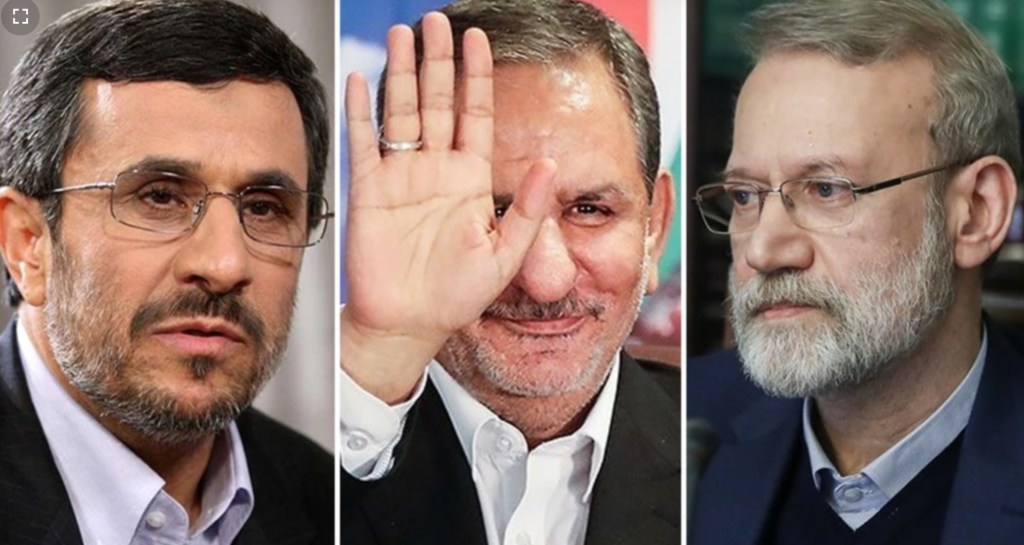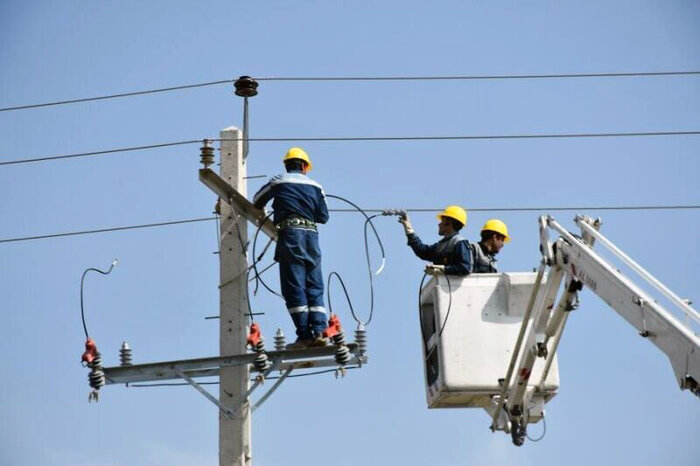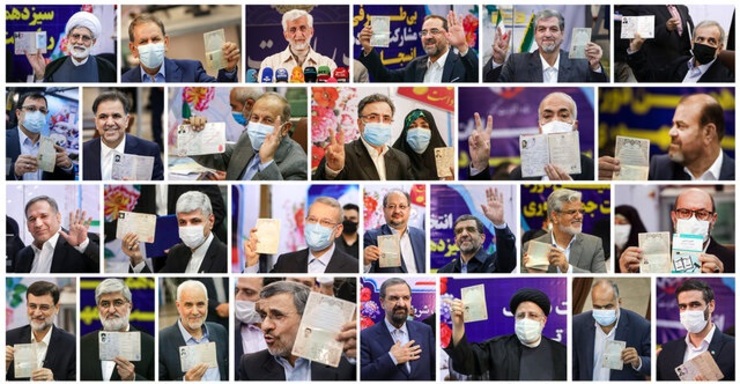
Economy on the Verge of a Big Crisis
The editorial of Tejarat maintains that the next decade will play a critical role in Iran’s economy as the country is facing serious problems which require great resolve to overcome.
The coming decade is the most vital for Iran’s economy. The last decade was that of lost opportunities, as golden opportunities were squandered. A review of the economy in Iran since the 1960s shows that the last decade was the worst. The average growth in Iran’s economy in the last decade was zero and the average rate of inflation was 24 percent. Due to recession and inflation in the last decade and the pressure imposed on Iran’s economy, people’s purchasing power severely plunged, while social disarray increased in the last decade.
In this decade, Iran faced new crises including a crisis of hope. People had been hopeful that their economic problems would be partially resolved. Positive slogans regarding the economy were raised. There was supposed to be economic prosperity, welfare, etc. In this decade, however, Iran had to face sanctions twice.
Under these circumstances, the next decade will be the most important one for Iran’s economy. There are accumulated economic challenges, some of which are critical. People must know that in the next decade Iran is going to face four serious crises related to water, population, pension funds, and the end of the era of oil exports. To that, we should add the challenges faced by the banking system, unemployment, economic inequality, air pollution, and other economic challenges.
Among these challenges, the most critical is that of water. The water crisis is dangerous as it can result in widespread protests in provinces and villages.
The Eighth President Has No Room for Making Mistakes
The editorial of Arman Melli argues that whoever is elected in the upcoming presidential election in Iran must not make any reckless, adventurous move regarding the nuclear case, as it might aggravate the economic and livelihood crises that already exist in the country.
Right now, economic, livelihood, political, security and diplomatic conditions in Iran have reached a complicated and critical level. People have no intention of participating in the presidential election, while the gap between society and the establishment has hugely increased. Iran’s diplomatic disputes have spread from nuclear activities to regional, defense, and human rights issues. Furthermore, the US maximum pressure policies have created serious economic and livelihood problems for the country. To that, we must add the dire consequences of coronavirus on health, the economy and income levels.
So, we cannot compare the 2021 election with that of 2005. Any government with any political viewpoint that takes office has to face plenty of domestic, regional and international problems and crises, while the government’s treasury is empty. Under these circumstances, the upcoming government is not allowed to act recklessly with regard to nuclear activities and the JCPOA, as did Mahmoud Ahmadinejad’s government in 2005.
Given the experiences of the Khatami, Ahmadinejad and Rouhani governments, the Iranian establishment has reached an understanding towards the nuclear case and diplomatic issues. That is why it is not trying to create sensitivity about the nuclear case, as it might result in more security and diplomatic challenges and the deepening of the economic crisis which has severely impacted living conditions in the country.
That is why the Iranian establishment has given the green light to the Vienna talks with regard to Iran’s nuclear activities, hoping that it can improve living conditions and the economic situation in the country after US sanctions are lifted.
In other words, domestic crises in Iran have served as a warning to the establishment that society cannot tolerate this situation any longer, so there is no place for reckless acts. This view will certainly be imposed on the next government, because even if someone like Ebrahim Raisi is elected as president, there is no room for any mistakes.
Bumpy Road Ahead of Raisi for Becoming President
The editorial of Arman Melli, penned by renowned “reformist” journalist and activist Ahmad Zeidabadi, discusses two obstacles Ebrahim Raisi, the main “hardline principlist” candidate in the upcoming presidential race, has to face to gain more votes.
Chief Justice Raisi has a clear, definite base of voters among the so-called “revolutionaries” and “hardliners” in Iran. But that is not enough for his victory in the presidential race, because the maximum vote of this group is no more than 7 million. So, Raisi has to gain the votes of another part of society that has different inclinations from the so-called “revolutionaries.”
To do so, Raisi faces two obstacles. First, his stance is ambiguous towards interaction with the international community, particularly Europe, America, and Iran’s Arab neighbors in the Gulf. Apart from those who have completely lost hope in the election and will not participate in it, those who still expect that the next president can make improvements in their living conditions do not think it is possible to lift international sanctions without normalizing relations with the West.
So, Raisi’s ambiguous language with regard to interaction with the world will not help him in gaining this group’s votes. Probably, in the upcoming debates, his main rivals including Ali Larijani and Eshaq Jahangiri will try to push him to take a clear stance in this regard. So, Raisi must clearly announce his stance with regard to the JCPOA, lifting sanctions, and Iran’s relationship with America. But this will be problematic for him. If he says he will back interaction with the West, it will displease his base. And if he talks against the JCPOA to please his base, he is going to lose the grey votes.
The other obstacle ahead of Raisi is the violent and menacing rhetoric used by some of his supporters. Personally, he has tried to look “calm and kind” in recent years and that tone has somehow helped him with those groups that are fed up with the harsh belligerent rhetoric used by the “hardliners” in Iran. But during the election campaign, it is not just Raisi who will be talking. His fiery supporters too will enter the scene and will use a certain kind of language that infuriates the public.
Now, if he distances himself from such supporters, it will hurt their feelings, and if he vindicates their behavior, he will lose others’ votes.
Chaos in the Nomination Process for the Presidential Election
The editorial of Tejarat addresses the chaos and confusion which existed in the nomination process for the presidential election, slamming both the Guardian Council and the government for not being able to reach an agreement regarding this process.
Once every four years, Iranians experience democracy by participating in elections and elect the head of the government for four years. Even though this process is reasonably stable in all countries, it has become a challenge in Iran: 592 people have registered for a chair while more than 95 percent of them are certain they have no chance in getting that position.
This process suffers from chaos and disorder which will have domestic repercussions and provides a chance for foreign media to sabotage democracy in Iran. This problem, undoubtedly, has its roots in the Constitution. If the Constitution was more logical, accurate and specific with regard to election law, then many wouldn’t be able to make a mockery of this process.
The problem is that after 42 years, there is still no urge to reasonably and legally amend this process. Many plans and bills are proposed for amending the election law, but they have been abandoned, and once again the presidential election turns into a circus.
This year too was no exception. But, due to political conflicts, there was no arrangement for properly managing the nomination process. Amidst all this confusion, the Guardian Council tried to enforce some restrictions to organize this challenging process, but was faced with the government’s inaction.
It makes no difference which one – the Guardian Council or the government. But what is for sure is that each has its own understanding of the Constitution. People have the right to know if the Guardian Council has the right to legislate or issue executive orders beyond the framework of the Constitution.
But what was worse than the process of nomination was the lack of interaction and understanding between the Guardian Council and the government. Wasn’t it possible for the Guardian Council to have a private session with government officials to reach an understanding and respect the law?

Ahmadinejad, Larijani, Jahangiri Get Disqualified From the Presidential Election

Iran’s Interior Ministry announced in a statement that seven candidates have been qualified by the Guardian Council to run for the 13th presidential election. Before this announcement, however, the IRGC-affiliated Fars News Agency had already published the final list of qualified candidates, creating considerable controversy.
The list of qualified candidates is as follows: Chief Justice Ebrahim Raisi, Secretary of the Expediency Council Mohsen Rezaei, member of the Expediency Council Saeed Jalili, Central Bank Governor Abdolnasser Hemati, Member of Parliament Ali Reza Zakani, Deputy Parliament Speaker Amir Hossein Ghazizadeh Hashemi and former Vice President Mohsen Mehr Alizadeh.
The major disqualified candidates include advisor to the Iran’s supreme leader and former Parliament speaker Ali Larijani, Vice President Eshaq Jahangiri, and former
President Mahmoud Ahmadinejad.
In reaction to his disqualification, Ali Larijani issued a statement saying he has done his duty for the people and for God: “I am now satisfied with God’s decision.” Vice President Jahangiri said in a statement that the Guardian Council’s measure is a “major threat against public participation and fair competition of political trends, especially reformists.”
Meanwhile, a video clip published on social media shows MP Ali Reza Beigi saying that Ahmadinejad’s house is under “siege.” Ahmadinejad had threatened that he would boycott the election if he was disqualified.
Furthermore, the head of the Expediency Council Sadegh Amoli Larijani has slammed the security institutions for their “increasing interferences” in the Guardian Council’s decision making “by their false reports.” Amoli Larijani, who is a Guardian Council member himself, criticized the security institutions for misquoting the Intelligence Ministry in some cases.
Among the disqualified candidates are former lawmakers Ali Motahari and Mahmoud Sadeghi, son of late Ali Akbar Hashemi Rafsanjani, Mohsen, who is currently the head of Tehran City Council, “reformist” politician Mostafa Tajzadeh and Labor Minister Mohammad Shariatmadari.
Power Outages: Energy Ministry Calls for Intelligence Ministry to Intervene

Power outages have had many repercussions for Iranian society and the economy. Officials talk of the risk to the lives of patients in hospitals and health centers, while other officials say that power outages have disrupted the coronavirus vaccination drive.
Energy Minister Reza Ardakanian blames the illegal mining of cryptocurrencies in different parts of Iran for the frequent power outages in recent days. He has asked the Intelligence Ministry and the Economic Security Police to intervene and stop illegal mining.
Ardakanian later apologized to the Iranian people for the recent power outages, blaming the shortage of power on “untimely heat, the drop in precipitation, and the illegal mining of cryptocurrencies.”
No details with regard to the security procedures to address the power outages have been given, but “identifying and dismantling illegal centers for mining cryptocurrencies” are some of the measures mentioned.
In recent days, power outages have disrupted the lives of many Iranian citizens: the disruption of work in offices and small workplaces, hundreds of people being trapped in elevators, traffic disruptions, coronavirus vaccines going to waste in health centers, etc.
In some areas, these outages have continued for up to three hours, and some have even experienced power cuts two or three times per day.
In January, following the extensive power outages in many Iranian cities, it was announced that bitcoin mining had put extra pressure on the country’s power grid. Officials gave no explanation in this regard, but from the remarks made by some officials, it could be inferred that some Chinese companies have been mining cryptocurrencies in Iran due to the cheap price of electricity.
Many social media users hold that Iran has paid a high price for taking advantage of nuclear power, and now officials say that they have resorted to mining cryptocurrencies to circumvent US sanctions, which has resulted in a power shortage.
According to a study, roughly 4.5 percent of all bitcoin mining in the world takes place in Iran, which allows Iran to earn hundreds of millions of dollars in cryptocurrencies which can be used to lessen the impact of sanctions.
Prominent Human Rights Activist Sentenced to 80 Lashes, 30 Months in Jail
Vice President of Iran’s Defenders of Human Rights Center Narges Mohammadi has received a new sentence from the judiciary: 80 lashes, 30 months of discretionary imprisonment and monetary fines. This sentence is related to a new case filed against her.
In an interview with Radio Farda, Mohammadi said that she would not recognize the new sentence and would “defy and disobey” it.
Mohammadi urged, “I will defy and disobey any sentences that they want to carry out, and I will not allow them to flog me.”
She is now charged with “propaganda against the Islamic Republic of Iran establishment by publishing a statement”—which refers to a statement she published against capital punishment. Her second charge, “staging a sit-in at the prison office,” concerns the time she staged a sit-in at the prison office in protest to the massacre of people on the streets during Iran’s November 2019 protests. The third charge, “disobedience towards prison officials and its warden” is also related to her sit-in protest when she refused to end it. Other charges include “breaking windows” and “libel” against prison officials for stating that she had been tortured and beaten in jail.
In a video message published previously, Narges Mohammadi explained in detail the “horror” she experienced in the prison on the day of her protest sit-in, including being beaten and assaulted by security forces and the prison warden himself. She noted mistreating women prisoners “is not something personal but an entirely political issue.”
This new case came after she was released from prison eight months ago after a five-year-and-six-month incarceration. Despite her release, she has been denied a passport and has been barred from visiting her children who live in France.
44 Economists Slam Presidential Candidates: Do Not Generalize, Offer Plans

44 economists have written an open letter to those who are currently running for office in the imminent presidential election, asking them to overcome the political obstacles in relation to Iran’s interaction with the world while pointing to the impact of foreign policy on the country’s economy.
The letter underscores that the candidates’ economic agenda should be clear and tangible, urging them to present their priorities regarding essential economic issues while providing solutions for them.
Economists also criticize the presidential candidates for their generalizations and refusal to offer clear solutions. In their letter, these economists offer 17 approaches, including increasing women’s economic participation rate, reducing corruption and creating transparency, creating economic security, constructive interaction with the world as well as ending the dominance of traditionalism from the country’s economic structure and the reinforcement of the executive branch.
“We know that in recent years inflation has been partly due to sanctions; how are you going to lift the sanctions or not expose the economy to new sanctions? In addition to their effect on inflation, the sanctions have deeply impacted national production and economic stability, technology transfer, health and medical treatment, as well as poverty and welfare, among other issues,” states the letter.
This is not the first time economists have raised the alarm in this regard. They have repeatedly mentioned Iran’s political isolation and its lack of interaction and participation in the international economy as the key factors behind its underdevelopment.
Meanwhile, the Parliament’s Planning and Budget Committee announced last November that 60 million Iranians were eligible for receiving subsidies for essential goods – which means that 75 percent of the population need financial help. However, neither the government nor the Parliament have provided any strategies or policies as yet to counter this widespread prevalence of poverty.
